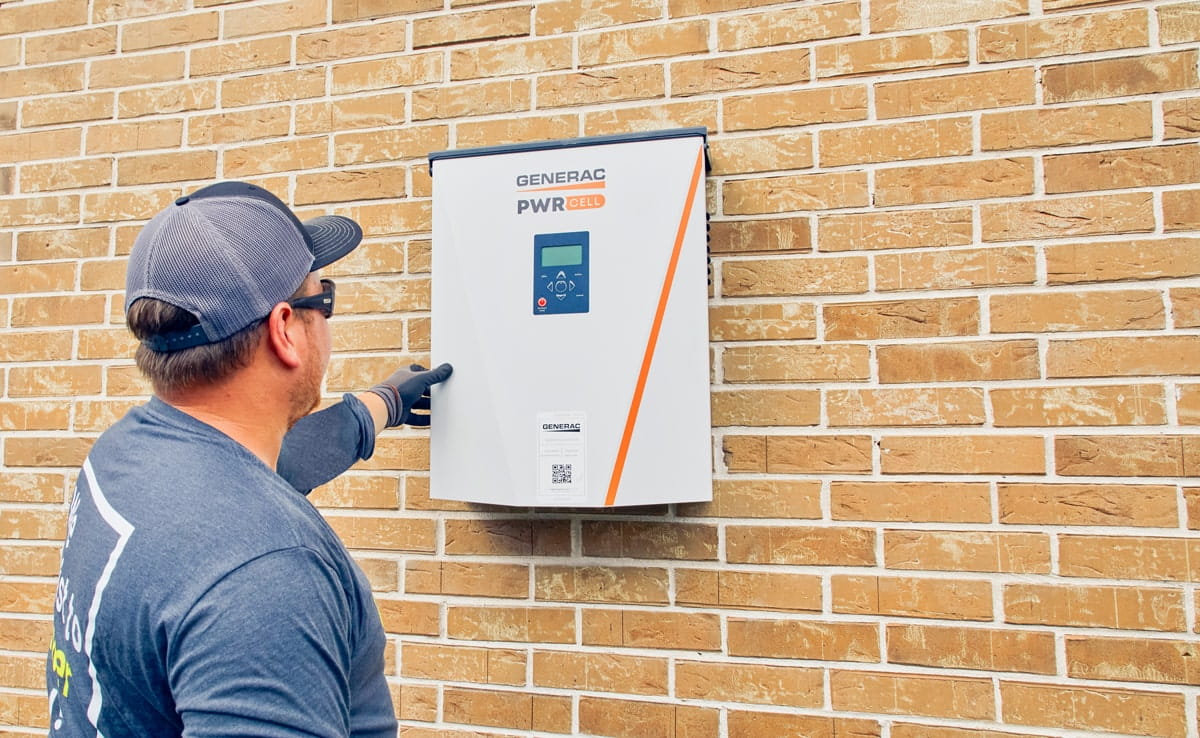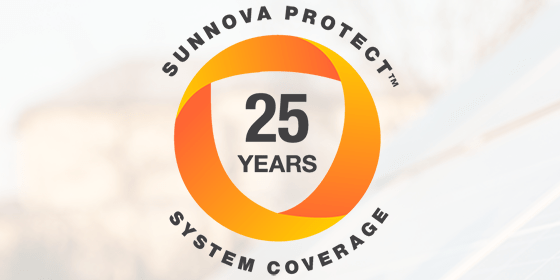

Whether you already have a home solar system installed and are enjoying all the benefits of going solar, or are looking into a new home solar system, you may also consider adding battery storage. When thinking about investing in solar battery storage, you may have some questions like:
- What are the benefits of a solar + battery storage system vs. a solar-only system?
- How does a battery work?
- Do I have to do any maintenance?
- What type of batteries are available?
- Is one battery better than another?
- How long will a battery last? Is there a warranty?
Read on to learn the answers to these questions and more!
The Benefits of Battery Storage
When comparing a home solar + battery storage system to getting energy from your utility, or even from a solar-only system - it’s not necessarily an apples-to-apples comparison, more like apples to oranges.
Unlike a solar-only system or traditional utility energy, a home solar + battery storage system has three unique benefits:
- Get resilient backup power
- Create and store your own solar energy
- Gain protection from peak rates (California customers only)
Read our blog on whether battery storage is right for you to learn more about these benefits.
How Does Battery Storage Work?
A home solar + battery storage system works similar to a home solar system except excess energy produced by your home solar system is sent to the battery, as well as back to the grid when your utility allows it. And, the energy stored in the battery could be used to power your home at night during normal operation, as well as during the day and night when the grid is down.
How does it do all of this you may ask? Well, the battery includes intelligent software to automatically manage your home’s power and the flow of energy between the solar system, battery, your home and the grid (if your utility allows net metering). You won’t have to lift a finger. And, it will seamlessly provide backup power to your home in a blink of an eye – you may not even realize your home is being powered by your battery!
Operation and Maintenance
With a home solar + battery storage system, the power source is the sun - so your panels generate solar energy and recharge your battery with clean, renewable energy as soon as there is enough sunlight, even if it is not full sun. You do not need to touch anything, and no other fuel is needed to power it. And, no regular maintenance is required for the battery - just keep it free of clutter and away from water. We recommend consulting your manufacturer’s warranty and user manual.
Now, that is a hassle-free technology we can get behind!
How Long will the Battery Last and What Are the Different Types?
There are numerous factors influencing how long a solar battery will last - not all batteries are created equal and some technologies are better than others. And, when looking at all your options, you want to look at the warranty coverage so you can get the peace of mind you need when making this investment.
Battery Type
There are two main types of solar batteries available on the market: lithium ion and lead acid.
- Lead Acid
- Can only discharge 30-40% of its stored energy
- Up to 15-year life
- Lower efficiency – up to 85%
- Larger and heavier
- Typically installed indoors due to a lower preferred operating temperature
- Lithium Ion
- Can discharge 80-90% of its stored energy
- Up to 10-year warranty (or more with Sunnova – see more details below)
- High efficiency – up to 98%
- Compact and lightweight
- Suitable for outdoor installations due to a wider operating temperature range
While lead acid batteries have been around for over 100 years, lithium-ion batteries are now widely regarded as the best battery type for general energy storage applications due to the high energy density and very high efficiency. And, since lithium ion batteries discharge more energy than lead acid (80-90 percent vs. 30-40 percent), you can use more energy stored in the battery and power your home for longer with the same capacity. The upfront cost of lithium-ion batteries is higher than that of lead acid batteries. However, lithium-ion batteries have a lower lifetime cost than lead acid counterparts. Sunnova exclusively offers lithium-ion batteries.
While lithium ion batteries have a higher upfront cost, the price of lithium-ion batteries has fallen by about 80 percent over the past five years! Learn more about the cost to go solar and add a battery in our blog.
Operating Temperature

Depending on the climate for your region, where you install your battery storage system at home can make a huge difference since your battery should be kept at an optimal operating temperature to maximize its life and efficiency. For example, if you live in areas with moderate to mild temperatures, your battery could be installed outdoors. Whereas, in regions with harsher temperatures, your battery may perform optimally if it’s installed in an enclosed space, such as your garage or basement. However, when installed with inverters, batteries have an intelligent management system monitoring their health and adjusting the operation of the battery based on the conditions to make sure it operates optimally.
Consult your manufacturer warranty and work with your local solar expert will work with you to determine the best location to install your battery to maximize its performance.
How Long Will a Home Battery Backup Last?
Similar to your cell phone battery, the more you charge and deplete the battery, the less time the battery will last between charges. Each time your battery depletes and then charges again is considered a “cycle”. While with a cell phone, this decline can happen over a few years depending on the number of cycles. With a battery, the degradation is much slower.
This decline is inevitable with any type of battery. That’s why you should pay particular attention to your battery warranty. What is covered? Does it guarantee that your battery will be able to store a certain percentage of energy?
Home Battery Warranty

Most lithium-ion batteries have a warranty for up to 10 years. This doesn’t mean your battery will not operate after 10 years, it just means that the battery may not operate as it once did due to the degradation mentioned above. Some manufacturer’s guarantee a minimum energy storage capacity for up to 10 years - make sure to read your manufacturer’s warranty for more details.
While most manufacturers provide a 10-year warranty, a few solar providers and installers will extend the coverage for the battery so the battery is covered for as long as the solar system to make sure you can continue producing AND storing solar energy for years to come.
Sunnova’s up to 25-year Protection for Solar + Storage Customers
While most lithium-ion batteries only have a warranty for 10 years, new Sunnova solar + battery storage system customers receive up to 25-year battery protection featuring worry and hassle-free maintenance, monitoring, repairs, and replacements for both the solar system and battery. iii This means zero out of pocket costs for up to 25 years!
When it comes to investing in a solar battery, it’s important to get the right battery that works for you and your home. At Sunnova, we offer industry-leading, vetted lithium-ion batteries that can be customized to your needs. Talk to one of our local solar experts to find the right solution for you.